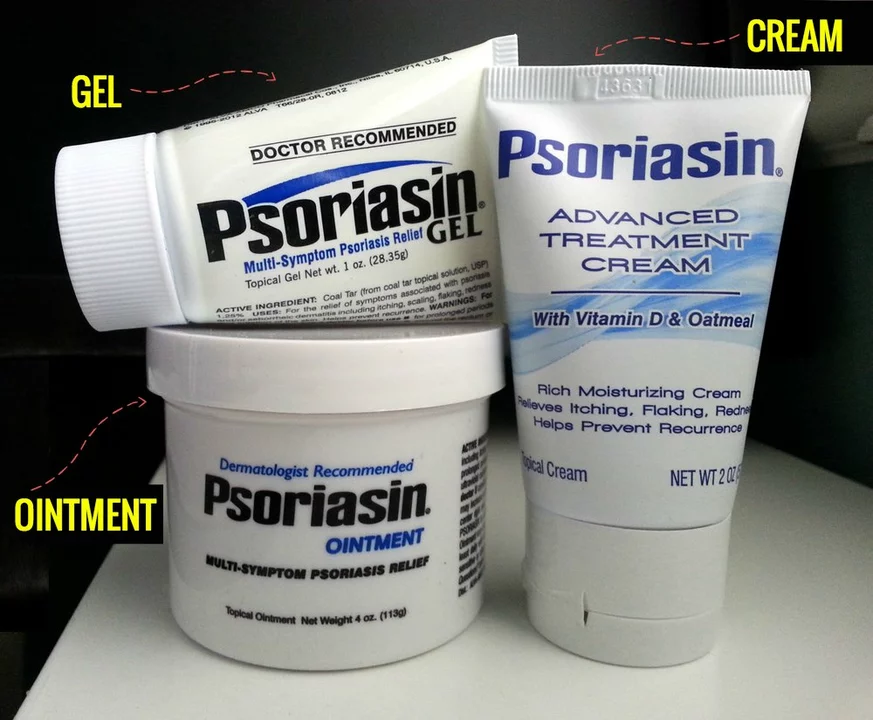Dermatology: What Your Skin Really Needs
Skin issues can be more than skin deep, especially when it comes to conditions like melasma (also known as chloasma). Ever wonder why certain dark patches appear on your face? It might be your body signaling a vitamin deficiency, particularly in vitamins like B12 and D. These nutrients play a big role in how your skin repairs and renews itself. Missing out can show up as unwanted discoloration and uneven tones.
Now, spotting these signs early can help you fix the root problem rather than just covering it up. That’s why understanding the link between nutrition and skin health matters. A quick boost in your diet or supplements might do wonders for clearing up those stubborn marks.
Calcipotriol: Helping Psoriasis Without Harming Your Skin
If you're dealing with psoriasis, you might have heard about calcipotriol. It's a popular topical treatment designed to slow down the rapid skin cell growth that causes psoriasis plaques. But using it right is just as important as using it at all. For example, applying too much or too often can irritate your skin instead of calming it.
Keep a good moisturizer handy and avoid long sun exposure, since calcipotriol can make your skin more sensitive to UV rays. Always follow your doc's instructions, and if your skin gets red, itchy, or starts peeling more than usual, check in with your healthcare provider. These simple steps keep your skin balanced while the medication does its job.
Quick Tips: Calcipotriene FAQs in Plain Words
You’re probably wondering about common worries regarding calcipotriene, a similar medication to calcipotriol used for psoriasis. Can you use it anywhere? Not really — areas like your face and groin are usually off-limits unless your doctor says otherwise. What about side effects? Skin irritation, redness, and itching are common but usually mild. Still, if things feel off, don’t hesitate to reach out to your doctor.
Knowing how to handle your skincare treatments and watching for vitamin issues can make a big difference in how your skin looks and feels. Your healthy skin isn’t just about products; it’s about understanding what your body needs every day.

Topical Steroid Potency Chart: How to Choose the Right Strength and Avoid Skin Damage
- Nov, 22 2025
- 8
Learn how to use topical steroid potency charts to treat skin conditions safely. Avoid skin thinning, redness, and rebound flares by choosing the right strength for your skin type and body area.

Vitamin Deficiencies and Chloasma: The Real Connection You Never Hear About
- Apr, 28 2025
- 11
Chloasma, or melasma, is more than just a skin issue—it's often a sign your body is missing key vitamins. This article digs into how vitamin deficiencies can mess with your skin, leading to dark patches. You'll find out which vitamins play the biggest part, how to spot the signs, and actual tips to fix the problem. No fluff, just straight facts and helpful hacks. You're about to learn what your skin's been trying to tell you all along.

Calcipotriol and Skincare: How to Keep Your Skin Healthy While Using This Treatment
- Apr, 27 2023
- 14
I recently came across calcipotriol, a topical treatment commonly used for psoriasis and other skin conditions. While using this treatment, it's essential to maintain healthy skin by following a few simple steps. First, always follow your doctor's instructions and avoid overusing the product. Second, make sure to moisturize regularly to prevent dryness and irritation. Lastly, protect your skin from sun damage by using sunscreen and avoiding excessive sun exposure. By taking these precautions, you can enjoy the benefits of calcipotriol while keeping your skin in good condition.

Frequently Asked Questions about Calcipotriene
- Apr, 26 2023
- 19
As someone who has researched calcipotriene, I've come across a few frequently asked questions about this medication. First, calcipotriene is a topical treatment mainly used for psoriasis, helping to slow down the growth of skin cells. Secondly, it's important to follow your doctor's instructions when applying calcipotriene, as overuse can lead to side effects. Thirdly, some common side effects include skin irritation, redness, or itching, but more severe reactions should be reported to your doctor. Lastly, it's essential to know that calcipotriene should not be used on your face, underarms, or groin area unless specifically directed by your healthcare provider.
Categories
- Medication Information (111)
- Health and Wellness (52)
- Women's Health (6)
- Support Resources (5)
- Supplements (5)
- Pharmacy Reviews (5)
- Dermatology (4)
- Mental Health (4)
- Nutrition (3)
- Fitness and Wellness (3)
Archives
- February 2026 (10)
- January 2026 (27)
- December 2025 (30)
- November 2025 (24)
- October 2025 (29)
- September 2025 (14)
- August 2025 (2)
- July 2025 (7)
- June 2025 (2)
- May 2025 (3)
- April 2025 (4)
- March 2025 (3)
- online pharmacy
- dietary supplement
- medication safety
- health benefits
- side effects
- generic drugs
- treatment
- wellness
- optimal health
- diabetes management
- safe medication purchase
- online pharmacy Australia
- brand name drugs
- drug interactions
- authorized generics
- generic medications
- link
- women's health
- dietary supplements
- sleep
